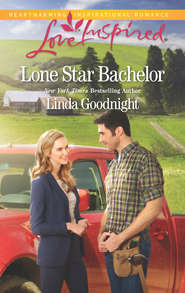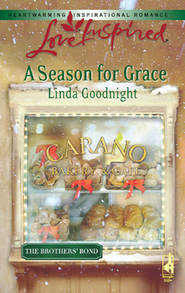По всем вопросам обращайтесь на: info@litportal.ru
(©) 2003-2025.
✖
The Memory House
Автор
Год написания книги
2019
Настройки чтения
Размер шрифта
Высота строк
Поля
Summer, 1864
The sound of advancing hoofbeats should have shaken the ground. Yet, they moved quietly, reverently it seemed, a cavalcade of Union soldiers bearing their wounded.
Charlotte Reed Portland’s first inkling that her Tennessee home was about to be invaded intruded as she taught a delicate embroidery stitch to her two sisters-in-law. Seated in the parlor, butter-yellow sunlight streaming in through the windows on a hot and windless day, Charlotte heard the excited voice of a servant, heard the hurried footfalls a moment before her nine-year-old son burst through the French doors, cowlick standing on end.
“Mama, the Yankees are coming!”
At Benjamin’s breathless announcement, Charlotte stiffened, her fingers tight on the embroidery hoop.
She had known they would come, an army of men at war with her adopted state, in need of horses and food to fortify the Union. What they didn’t understand, or perhaps didn’t care, was that the Confederacy had need of the same supplies. Even now, the small, out-of-the-way town of Honey Ridge was strained beneath the burden.
So, of course, the Federals would come here, to Peach Orchard Farm, home to three generations of Portlands, including her husband, Edgar, and their son. Though hardly a plantation, they were self-sufficient in corn and wheat, fruit and livestock, and a handful of slaves.
Please, Almighty God, do not allow them to take everything.
Her two younger sisters-in-law regarded her above their needlework with wide, hazel eyes, mouths dropped. Their milk-bathed complexions had gone chalky. As mistress of the house and an ancient twenty-seven, the responsibility for their well-being and that of the house and servants rested upon Charlotte’s shoulders.
“Miz Charlotte, you want I should go to the mill for Mr. Portland?” This from Pierce, the yardman, the whites of his eyes startling in his dark, sweat-gleamed face. A good man, a trustworthy and loyal servant.
Afraid the quiver in her throat would burst free and betray her angst, Charlotte nodded, breathing in for composure.
“Please do, Pierce,” she managed, her British accent stronger when she was nervous, an accent her husband had once found charming. “I’ll go out to greet them.”
With deliberate poise, she put aside the embroidery hoop and rose, smoothing damp palms over her green day gown. Fear vibrated in her stomach.
Edgar would not be pleased at an interruption, whether from her or the hated Yankees, but they’d heard the gunfire in the near distance early this morning. A battle, or perhaps only a skirmish; it did not matter which. Men would die. She’d prayed the war would not touch her household.
But now it had.
Charlotte could hide most feelings beneath a false serenity, a gift she’d found essential here in the American South, where differences were suspect, human beings were sold and traded and her husband ruled with a cold look.
“Josie. Patience,” she said to the younger women. “Lock yourselves in your rooms. Take Benjamin with you. Neither come outside nor look out the windows. Do not show yourselves in any way.”
With rigid posture and a sweep of full skirts, she moved out onto the long, pillared veranda, gripped the whitewashed railing and waited. Normally, she loved the scene from the porch, the double row of magnolias along the curving driveway, the expanse of peach orchard to the north. Yet, today her knees trembled and she saw only the advancing army—a straight military line of blue and gold and rows of men astride their mounts. The Union flag, stars and stripes aloft on the front steed, rippled slightly.
She’d heard the horror stories. The armies of the north came to pillage and destroy, but God help her, with her last breath she would defend her family and this home. From the moment Edgar had brought her here, a nervous bride of sixteen, she’d fallen in love with the house in a way she’d never been able to love the man. The house and her son were enough.
Sweat trickled beneath her collar and yet she waited, outwardly composed, searching for a sign of humanity among the enemy.
As the army moved closer, down the winding lane from road to house beneath the magnolia shade, Charlotte saw the lines of weariness on young soldiers’ faces, the blood on uniforms, the litters and foot soldiers bearing the wounded. It was a small company, not a great army as she’d first thought. In the haunted faces of barely men, the war came, bringing with it a sense that nothing would ever be the same again at Peach Orchard Farm.
With a heavy heart, made heavier by the knowledge that whether by choice or by chance she was their enemy, Charlotte stepped from the porch onto the grass and made her way forward as the horses and men drew to a stop. Dust swirled up from the hooves into her nose. There was a shimmery stillness in the air, as though the house, too, held its breath.
The apparent leader of the troops, a man of erect bearing with an air of authority, touched his heels to a sweaty gray. Charlotte stood unflinching as he approached. He was young, as they all seemed to be. Perhaps her age. And whether friend or foe, he looked dashing in his blue waistcoat with the gold bars on the shoulders and the matching gold stripe down the Union blue trousers. Dashing and handsome, though dusty and strained from God only knew what, with brown hair, a strong jaw dusted with tidy brown whiskers and a lean build.
“Ma’am.” He removed his hat, a navy blue with gold-crossed cannons above the bill. “I’m Captain William Gadsden of the United States Army. Is your husband in residence?”
A simple question, made necessary by the fact that most males in Tennessee had long since donned uniform of one color or another and gone off to fight. She knew Edgar’s deferment shamed him, made him bitter.
“A servant was sent to fetch him. What is the purpose of your visit? We are a simple farm of women and children and a handful of servants.” She refused to call them slaves. Many were as close as family and some, she suspected, might actually be.
Old Hub, whose only job these days was care of the chickens, hobbled around the house to stand beside her, a devoted if bent and feeble guard. His loyalty and courage buoyed her own.
The captain motioned toward the soldiers. “We have wounded.”
“I see that, sir. I’m sorry for your losses.” And truly she was. This American war was futile and cruel.
The captain twisted in the saddle with a slight creak of leather and raised a hand toward his troops. “Company, dismount.”
In poorly synchronized fashion, the battle-ragged soldiers slid from their saddles while a handful of ground troops broke rank and surged toward the veranda.
“Wait!” Charlotte held out a trembling hand as though she possessed the power to stop an armed military. “What is it you want? Food? Bandages?”
Before Captain Gadsden could answer, a commotion ensued on the line. Charlotte watched with growing horror as a soldier tumbled to the hoof-packed earth and lay still.
“George!” Sword tapping at his side, Captain Will Gadsden hurried toward the fallen. Another soldier knelt on one knee in the lane of Peach Orchard Farm and held an open palm above the fallen comrade’s mouth before he pressed an ear to the unmoving chest. He, hardly a man at all, looked up into the face of the waiting officer, his expression stricken. “George is dead, sir.”
The captain dropped his head. His chest lifted in a hard sigh. He placed a hand on the soldier’s shoulder and paid a quiet moment of respect. The company fell silent, the quiet broken only by the jingle of harness and the puff of equine nostrils.
The reaction touched Charlotte. The captain had a good and caring heart.
But the thought had barely formed when William Gadsden whirled on his boot heels in a decisive about-face. With a voice of authority, he stared straight ahead and said, “With apologies, ma’am, it is my duty to inform you that your residence is hereby commandeered for the good of the Union.” He lifted a gloved hand. “Men, move in!”
* * *
Will watched the color drain from the woman’s delicate features. She was pretty with her fair hair and precise British clip, for he was sure it was England and not Massachusetts he heard on her tongue. His heart squeezed with regret. Genteel and lovely, a woman of grace should not be affected by the evils of war, a woman like his sisters and mother. How he missed home on days like today when nothing but carnage lay in his wake.
He dismounted and approached the woman, removed his hat. “Ma’am, we require your home as a temporary hospital for our wounded. We’ll also need supplies, food and rest, but my men have strict orders to bring no harm to your home or family. We will take only what we need.”
Her chin lifted higher. “And how much do you need? We, too, have people to feed. I cannot allow you to rob my family.”
She was in no position to argue or even to barter, but like a slender oak, she stood her ground, not in anger but with fierce determination. Admiration stirred inside Will. “I will see that you have enough. You have my word.”
A man’s word was often all he had left in this savage war. His word and his honor. Will was determined to return home to Ohio with both unsullied.
Already his men swarmed the elegant home and he felt duty-bound to set a watch on their behavior. Though most were good soldiers, they’d long been away from the social graces of home. He wanted no trouble, would stand for none. Some companies, he knew, took the spoils of war, but he struggled enough with the decision to commandeer homes and take needed food and horses.
The woman’s expression softened, though her posture remained rigid and watchful. She gave a short nod. “Thank you.”
The old slave who’d crept around the side of the house and stood bent and twisted at her side spoke up. His furrowed black face shone with sweat and worry and age. “Miss Charlotte, Mr. Portland is comin’.”
Her head jerked toward the line of magnolias and then back to Will. It was the closest she’d come to showing disquiet, as if the husband’s presence made things worse instead of better.
She quickly regained her poise, a trait he both admired and respected. Then, as if inviting a neighbor to tea, she motioned toward the porch. “May I impose upon you to meet with my husband in the parlor? It is far cooler inside. Hub will show you the way.”
Before Will could respond, the surgeon called his name and motioned from the doorway leading into the house. Doc had wasted no time setting up, a necessary deed considering the nature and number of injuries from this morning’s skirmish.
“Stokes is asking for you, sir.”











